For Scottish SPCA Inspector Alison Simpson, there has only been one job she could ever imagine doing.
In fact, she even “effectively demoted” herself so she could keep doing it.
“I probably have more time for animals then I have for humans,” said Alison Simpson.
“They haven’t got their own voice and just being able to help the ones that need help in anyway, whether it’s injured wildlife at the side of the road or getting them out of situations or improving their situations, I think that’s what I was put on this earth to do.
“I couldn’t see me doing anything else.”
The former Scottish SPCA chief inspector admitted she moved back to being an Aberdeenshire inspector when an opportunity came up this year after missing the daily interactions with animals and humans.
Manoeuvring her SSPCA van along winding roads framed by sunlit Aberdeenshire countryside, she smiled and said: “I love being back on the road.
“I feel like I make more of a difference, taking animals out of a situations.”
Insp Simpson is one of five inspectors working across Aberdeen, Aberdeenshire and Moray.
Responding to a rise in welfare concerns and an ongoing animal welfare crisis, she said it is a privileged role but one that comes with many challenges.
It is clear the 27 years working for the animal welfare society have done nothing to dim Insp Simpson’s passion and for one day, she allowed us a brief peak into her world.
What is an inspector’s job?
Starting off the day in Inverurie, after a couple of hours, it is clear Insp Simpson wears many hats.
With her van acting as a call centre on wheels, the Aberdeenshire-born inspector at times embodies a social worker, confidant or concerned friend.
However, she is never swayed from her primary role.
“For me an inspector’s job is to investigate complaints or any concern in relation to an animal suffering unnecessarily,” she said.
“Or even to make any animal’s life better because we’re always trying to be proactive as well in welfare.
“The animal will always be our first priority but the person that’s caring for that animal is also a priority because one, you’re trying to make them aware of their responsibility in the first instance.
“But also advise them further on appropriate behaviour or what they could do better to better an animal’s life.
“Where people have got animals and they’re struggling mentally, that can lead to issues with their animals and that’s probably where we’re more aware and more sympathetic.
“But it’s a really fine line because even though you’re struggling, you can still ask for help. There’s no excuse for letting something starve or letting something go untreated.”
Dog trapped outside
On the first stop of the day, she swings into action.
Responding to reports of a large breed dog being left out all day without a shelter, she politely introduces herself before explaining why she is there.
After chatting, it is clear that the dog is not being left alone but Insp Simpson said it would still need a shelter if it did not have access to inside the house.
Walking away from the well-loved pooch after a quick pet of some very cute kittens, we head back to the van.
A few minutes after the visit in a layby, Insp Simpson answers a series of calls on other open cases and reports. One is regarding medical treatment for a recently rescued pony which is now very ill.
“The pony at the centre, that actually breaks my heart,” she said.
“We’ve taken it out of a situation. He’s started to fully interact with us and then he’s become not well.”
Just wanting a “bit of happiness” for the pony before it leaves this life, Insp Simpson, said seeing animals happy and rehomed was her highlight.
Whenever the inspector comes across one of the animals she helped rescue, she said: “I just think ‘I gave that dog that life’.
“That’s what makes your job worthwhile. And the centre staff do such a good job of bringing the animals on, we’re just the first part of it.”
Moray donkey with overgrown hooves
With her Moray colleague away, Insp Simpson then heads up to Keith after receiving a call concerned about a donkey with overgrown hooves.
Again, after a polite introduction to the owner, we make our way round to the field.
Jumping gates and dodging muddy potholes, we soon spot the subject of concern and stop in dismay.
The donkey rises to greet us on what looks to be more like curling shoes than hooves. It is a wonder he can walk.
“I’m surprised he’s not lame,” added Insp Simpson.
Despite his elf-like hooves, the furry companion appears to be in good spirits and in no pain.
The owner said they had tried several times to get a farrier out to see the animal but they had cancelled the last few times.
They are handed a welfare notice – a legally enforceable document – and told to get it sorted in the next week. They assure Insp Simpson they will.
Hard job keeping everybody happy
The next two visits in Forres are met with differing reactions.
In the first knock about a canine ownership dispute, the visit ends with a comfortable sofa chat.
The next call is following up after reports of an underfed large breed dog.
Met with “what now?”, we are lucky to make it past the garden gate.
Thankfully, the large dog appears to be happier to see us and cheerfully bounds and plays.
All seems to be well and we leave with a slither of slobber and a lap-full of dog fur.
While attitudes towards inspectors are changing, Insp Simpson admitted this was a fairly regular reaction.
“It is a kind of job that’s quite hard because sometimes you can’t keep everybody happy,” she said.
“You’ve either got the caller saying you’re not doing anything because they’ve left the animal there or if it is bad and you are taking action, you’ve got the owner saying they took my animals away and they’re not doing anything with them.
“It frustrates me because you’re only seeing half the story and naebody kens what we’re doing in the background as well.”
Charity trying to help before action has to be taken
In 2021, the caseloads for inspectors in the north-east doubled.
The next year, owners calling the Scottish SPCA to give up their pets trebled. In the first six months of this year, that number has quadrupled.
People are struggling to afford to keep their animals due to rising costs and vet bills.
In Aberdeenshire, there are much more group animal removals of over 10 pets being rescued but the charity is running out of space.
Chief executive of the SSPCA, Kirsteen Campbell, said they are on the front lines of an “animal welfare crisis”.
Due to this, the charity is trying to offer help before a situation becomes “bad enough that they need to be taking decisive action”.
On the way back from Forres, Insp Simpson makes a stop to help a struggling pet owner.
A few large breed dogs being looked after are very thin and it is clear they need to eat more. To help, Insp Simpson drops off a large bag of dog food.
In a few weeks, someone will check back in to see if their weight had improved.
Not a job but a way of life
There is just one more visit to make and sadly, it is not an easy one.
Police called Insp Simpson to help after an owner died and left an older horse by itself.
With no one else around able to help, the SSPCA has been called in to assist with putting the animal down and covering the cost.
Unfortunately, the transport and possible rehoming probably would have caused the animal too much stress.
We arrive after the vet has done the deed with the horse lying a few feet away from its stable.
As we drive away, Insp Simpson said: “[The job] it toughens you up. It makes you realise as well that euthanasia isn’t always a bad thing.
“You’re quite privileged really. You get to drive around the countryside, your everyday is different. I think it’s a way of life.
“You need a real passion for animals because if you haven’t got that, you cannae do it.”
To find out more about the Scottish SPCA or to look into adopting or fostering an animal, click here.
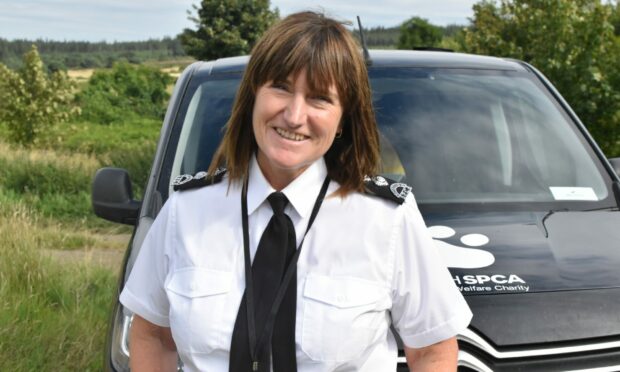
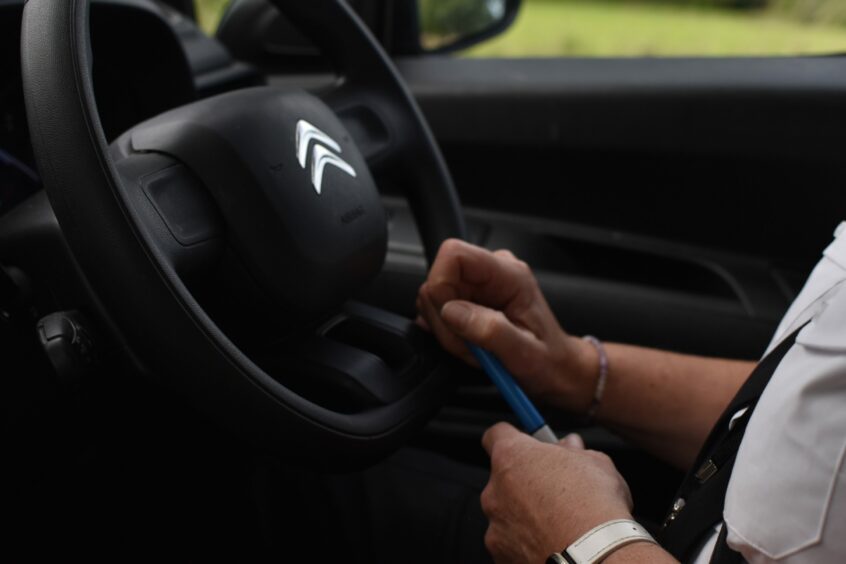
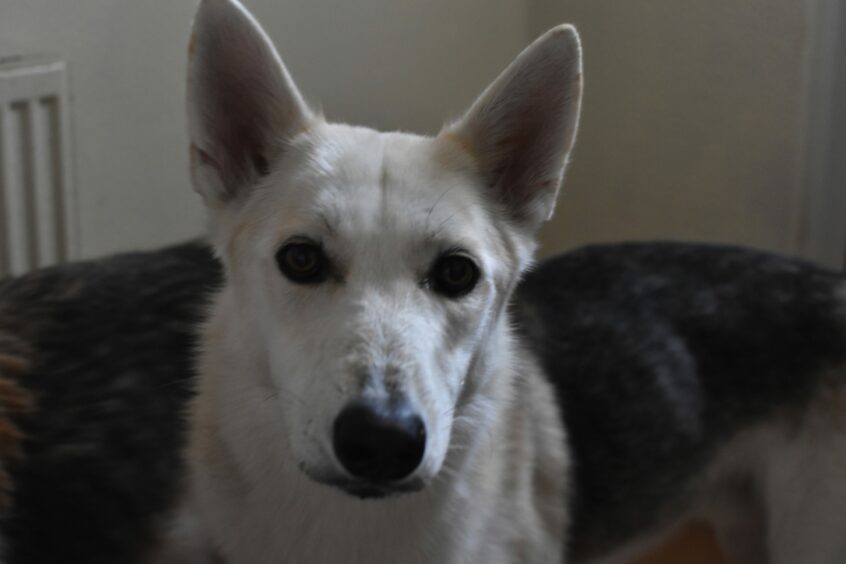
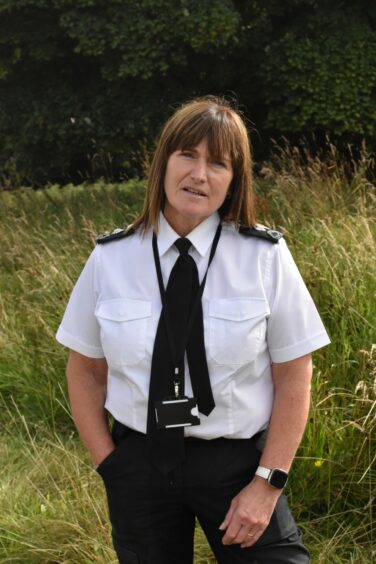
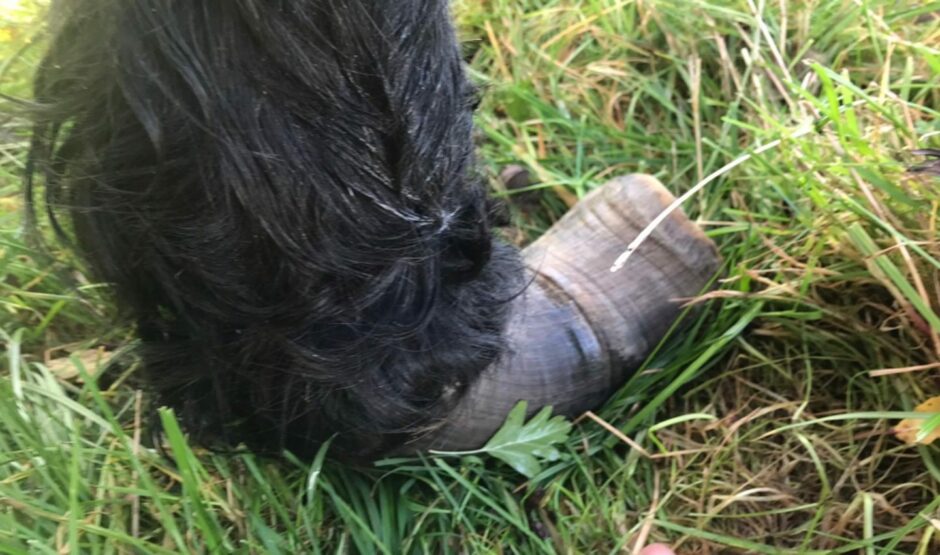
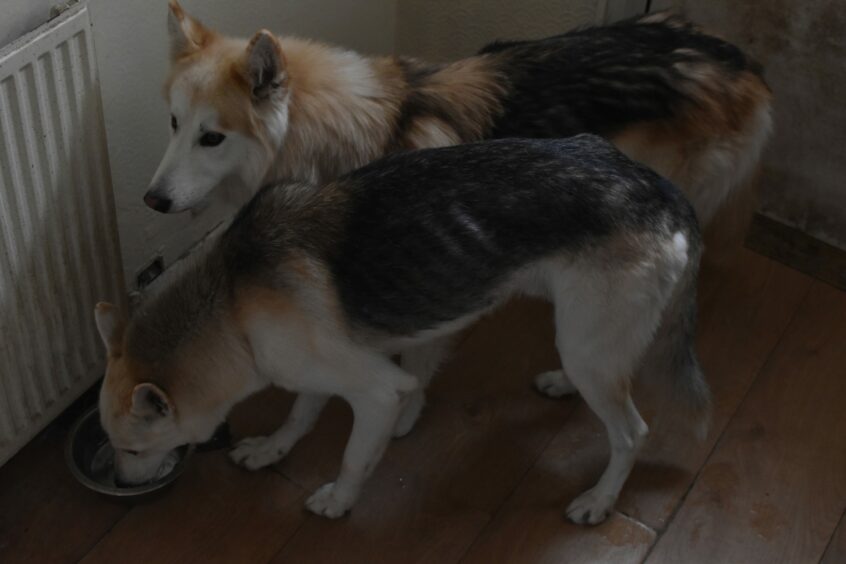
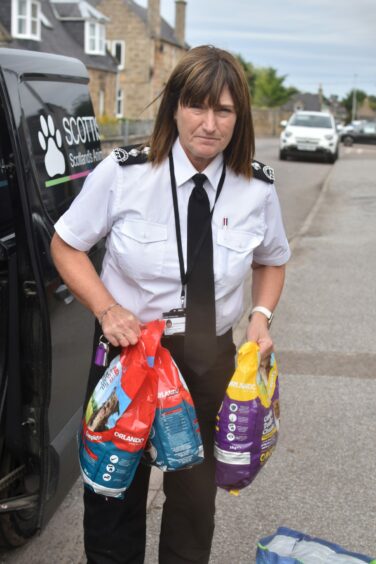
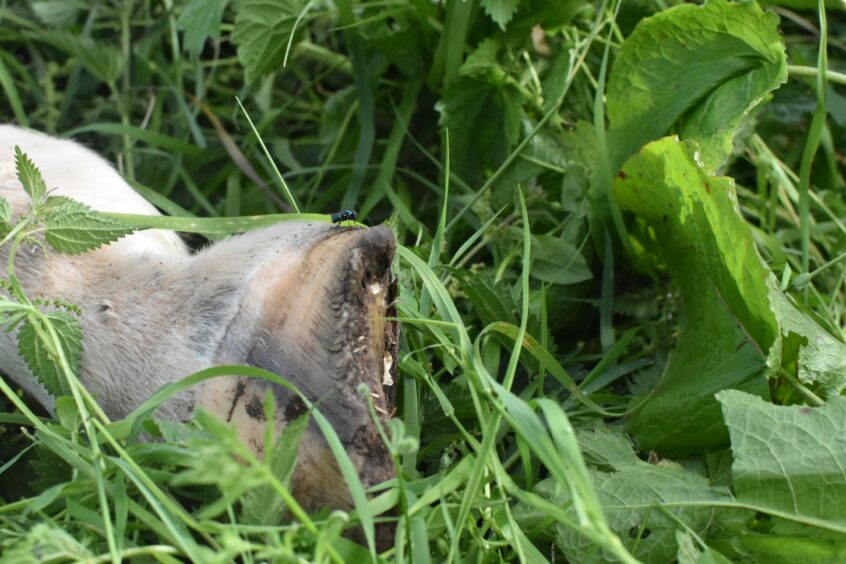
Conversation